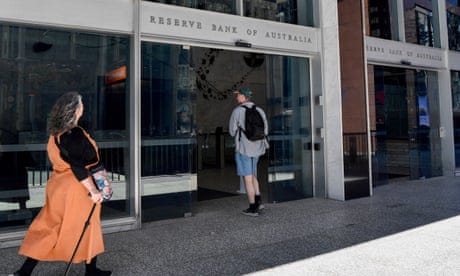I was part of a panel who responded to this question for The Guardian Here’s my response The economic situation facing the majority of Australian households is dire. However, the common framing of the problem in terms of the “cost of living” distracts attention from the real problem, which is the decline in the real purchasing power of wages. Having remained stagnant for years, wages have now fallen far behind inflation. Moreover, the average rate of tax paid is rising because of bracket creep and because of the expiry of the Morrison government’s low- and middle-income tax offset, which was not extended in the October budget. Under our current policy approach, economic welfare is declining Neither of these outcomes is likely to improve significantly during the current
Topics:
John Quiggin considers the following as important: Uncategorized
This could be interesting, too:
tom writes The Ukraine war and Europe’s deepening march of folly
Stavros Mavroudeas writes CfP of Marxist Macroeconomic Modelling workgroup – 18th WAPE Forum, Istanbul August 6-8, 2025
Lars Pålsson Syll writes The pretence-of-knowledge syndrome
Dean Baker writes Crypto and Donald Trump’s strategic baseball card reserve
I was part of a panel who responded to this question for The Guardian
The economic situation facing the majority of Australian households is dire. However, the common framing of the problem in terms of the “cost of living” distracts attention from the real problem, which is the decline in the real purchasing power of wages. Having remained stagnant for years, wages have now fallen far behind inflation. Moreover, the average rate of tax paid is rising because of bracket creep and because of the expiry of the Morrison government’s low- and middle-income tax offset, which was not extended in the October budget.
Under our current policy approach, economic welfare is declining
Neither of these outcomes is likely to improve significantly during the current term of government. The budget papers predict a further decline in real wages this year, and only a partial recovery over subsequent years. And while those on high incomes will benefit from the stage-three tax cuts, there is nothing for those on incomes below $45,000. Even the indexation increases in pensions and benefits lag behind inflation by six months.
In response to this crisis, Albanese has said, in effect, that his hands are tied. First, he denounces relief for low-income earners as “a cash-splash, a one-off giveaway to buy a headline. Cheap politics and hugely expensive economics”. But the same is true, in spades, of the massive stage-three tax cuts, which Labor promised to implement for fear of losing a few marginal high-income voters.
If the stage-three tax cuts had been cancelled or deferred in the October budget, Labor would have had room to improve the position of the worst-off voters, while maintaining a broadly stable ratio of debt to GDP. But Labor was too frightened of negative headlines to grasp this nettle.
Albanese’s other argument is that any expansionary fiscal policy would be cancelled out by the RBA, which would raise the interest rate. He observed that “fiscal policy needs to work with monetary policy, not contradict it”.

There’s an element of truth here, but also a huge problem. As well as maintaining price stability, the RBA is supposed to act to achieve full employment and “the economic prosperity and welfare of the people of Australia”. But under our current policy approach, economic welfare is declining. Unemployment is expected to rise, and real disposable incomes to fall, even in a situation where GDP is growing steadily.
Under the policy of central bank independence, first introduced under the Howard government, there is nothing that can be done about this. The Reserve Bank pursues its inflation target without regard to the policies of the elected government. But this policy has not served Australia, or other countries that have followed this course, at all well. It was necessarily abandoned during both the GFC and the Covid lockdown. If fiscal policy must work with monetary policy, the reverse should also hold true.
It is clear enough that our current economic policy institutions are not fit for purpose. Sadly, that includes the policies of the Albanese government.
